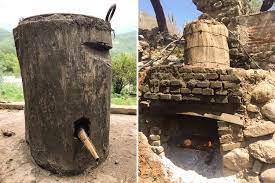Filipino distilleries are making a name for themselves on the global stage, producing unique and flavorful spirits that capture the essence of the Philippines. The Filipino distillery scene is thriving, from traditional liquors with deep historical roots to modern craft distilleries leading the way in innovation. In this article, we will explore the fascinating history of distilleries in the Philippines, delve into the vibrant current distillery scene, and celebrate the cultural significance of local Filipino spirits.
The History of Distilleries in the Philippines
Throughout history, the Philippines has had a rich tradition of producing distilled spirits. The journey begins with the early beginnings of traditional Filipino liquors that were made long before the arrival of European colonizers.
Early Beginnings: Traditional Filipino Liquors
Indigenous groups in the Philippines have been producing alcoholic beverages for centuries. From the rice-based tapuy to the palm wine known as tuba, these traditional liquors served as a staple in cultural and ceremonial celebrations.
Making these liquors involved using locally available ingredients and traditional methods passed down through generations. The result was a range of unique flavors showcasing the abundance of natural resources across the archipelago.
The Influence of Spanish Colonization
The arrival of Spanish colonizers in the 16th century brought significant changes to the Filipino distillery landscape. The Spanish introduced the art of distillation and copper stills, revolutionizing the production process and expanding the variety of spirits created.
Under Spanish rule, the production of rum, known as “Lambanog,” gained popularity. Made from the sap of coconut flowers, Lambanog became a symbol of Filipino craftsmanship and innovation in the distilling industry.
Post-Colonial Developments
Following the end of Spanish colonization, Filipino distilleries faced various challenges. However, the post-colonial era also marked a period of growth and resurgence for the local spirits industry.
Distilleries began experimenting with new techniques and ingredients, creating spirits such as cacao-based liqueurs, mango-infused vodkas, and coffee-infused rums. These innovative products showcased Filipino distillers’ creativity and ability to capture the diverse flavors of the Philippines.
The Modern Filipino Distillery Scene
Today, the Filipino distillery scene is experiencing a renaissance, with a new wave of pioneers pushing the boundaries of traditional spirits. Craft distilleries, in particular, are playing a crucial role in shaping the future of Filipino distilling.
The Pioneers of the New Wave
Several distilleries are at the forefront of the modern Filipino distillery movement. They are passionate about preserving local traditions while embracing contemporary techniques.
One such pioneer is a distillery specializing in producing gin infused with locally sourced botanicals. By using Filipino herbs and fruits like calamansi and pandan, they offer a unique twist on a classic spirit.
The Role of Craft Distilleries
Craft distilleries are driving innovation in the Filipino spirits industry. Their focus on small-batch production and attention to detail allows them to create spirits with exceptional quality and distinct flavors.
These distilleries often collaborate with local farmers and suppliers, ensuring their ingredients are of the highest quality and supporting the local economy. By championing sustainable practices and promoting the use of native ingredients, craft distilleries are not only creating exceptional spirits but also preserving Filipino heritage.
The Impact of the Global Craft Spirits Movement
The global craft spirits movement has profoundly impacted the Filipino distillery scene. With an increasing appreciation for small-batch, locally made products, Filipino spirits are gaining recognition on the international stage.
Distilleries actively participate in global spirits competitions, proudly showcasing Filipino spirits’ exceptional craftsmanship and unique flavors. As a result, Filipino spirits are gaining visibility and attracting a broader audience of spirits enthusiasts worldwide.
The Future of Filipino Distilleries
While the Filipino distillery scene is on a remarkable journey, some challenges and opportunities lie ahead. Understanding these factors is crucial for Filipino distilleries’ continued growth and success.
The Challenges Facing Filipino Distilleries
Competition from international brands and the high cost of production are some of the challenges Filipino distilleries face. Additionally, the lack of access to distribution networks and limited awareness of Filipino spirits in global markets hinder further expansion.
Opportunities for Growth and Expansion
Despite the obstacles, the Filipino distillery sector has ample room for development and expansion.
Such development includes:
Increased tourism.
Growing interest in craft spirits globally.
The rising popularity of Filipino cuisine.
The Potential Impact of Filipino Spirits on the Global Stage
Filipino spirits can become a prominent player in the global spirits industry. With their unique flavors, storied history, and commitment to sustainability, Filipino distilleries have what it takes to capture the attention and admiration of spirits enthusiasts worldwide.
As consumers globally appreciate the convenience of services like online scotch whisky delivery in the Philippines, there’s a golden opportunity for local spirits to claim their rightful spot in the digital marketplace. From the clear, potent ‘lambanog’ to the aromatic ‘basil’, Filipino distilleries have a wealth of unique beverages that can captivate global palates. You can grab the finest liquor options from Thirst: Philippine’s First Online Liquor Marketplace, housing products from top-rated merchants in the country.
Celebrating Local Filipino Spirits
Local Filipino spirits are more than just beverages; they represent the rich cultural heritage of the Philippines. The flavors, stories, and traditions associated with these spirits make them truly special.
The Unique Flavors of Filipino Liquors
Filipino liquors offer a wide range of flavors that are distinctively Filipino. From the fruity notes of mango-infused rum to the earthy profile of native herbs used in gin production, each spirit tells a story of the Filipino landscape and its diverse offerings.
Whether enjoyed neat, mixed into cocktails, or used as an ingredient in traditional Filipino dishes, these spirits provide a taste of the Philippines that cannot be replicated elsewhere.
The Cultural Significance of Local Spirits
Local spirits play a crucial role in Filipino culture and tradition. They are often essential to celebrations, festivals, and family gatherings, creating a sense of unity and shared heritage.
These spirits also represent the resilience and ingenuity of the Filipino people. By celebrating and promoting local spirits, Filipinos are preserving an integral part of their identity and supporting the growth of the local distilling industry.
The Rise of Filipino Spirits in International Competitions
The achievements of Filipino spirits in international competitions further solidify their place in the global spirits landscape. With recognition and awards from prestigious events, Filipino distilleries are making a name for themselves and proving they can compete worldwide.














